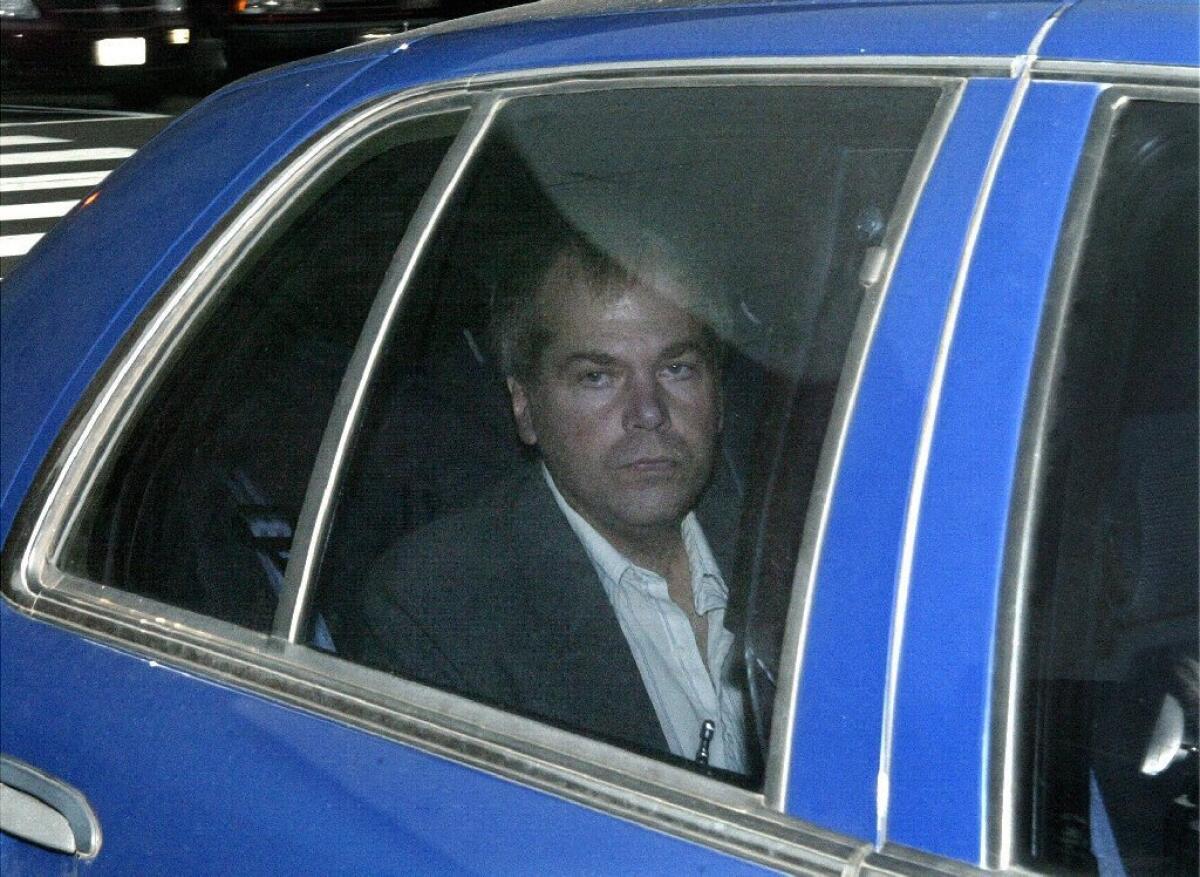Opinion: A wise decision not to charge John W. Hinckley Jr. in James Brady’s death

It’s not surprising that the U.S. attorney in Washington, D.C., has decided against trying to prosecute John W. Hinckley Jr. in the death of former White House press secretary James Brady. The surprise is that prosecutors gave the idea any serious thought after Brady’s death last August. It was obvious at the time that prosecuting Hinckley for Brady’s death was a non-starter.
Last week, the Justice Department announced that prosecutors had decided not to pursue charges against Hinckley after a “review of applicable law, the history of the case, and the circumstances of Mr. Brady’s death, including recently finalized autopsy findings.” But it was clear last summer that Brady’s death was a consequence of his being shot by Hinckley in 1981. (A medical examiner in Virginia termed Brady’s death a homicide.)
The issue wasn’t medical but legal: Could Hinckley, who was acquitted by reason of insanity of all charges in the attempted assassination of President Reagan, be indicted 32 years later for Brady’s death. Last summer, UCLA law professor Eugene Volokh explained why a prosecution probably would be forbidden.
Volokh argued that at the time of Hinckley’s trial (and maybe to this day, though that is contested), courts in D.C. were governed by the “year-and-a-day rule.” That common-law rule prohibits a murder prosecution if the victim dies more than a year and a day after being injured or assaulted.
But even if that rule didn’t apply, Volokh said, a prosecution of Hinckley for Brady’s death would be blocked by another rule known as “collateral estoppel,” which says that “when an issue of ultimate fact has once been determined by a valid and final judgment, that issue cannot again be litigated between the same parties in any future lawsuit.” Based on that rule, Volokh wrote, “the jury’s conclusion that Hinckley was insane is now binding on the government, and thus precludes a retrial for murder.”
So why did the Justice Department bother to launch the lengthy study that resulted in an endorsement of Volokh’s arguments? One could view it as a kindness to the Brady family, but, if so, it was a short-lived kindness.
The harder question raised by this case is whether the year-and-a-day rule still makes sense. Some jurisdictions have abolished it, on the grounds that modern medical science allows us to connect the dots between an attack at one point in time and its consequences many years later. According to this view, the rule is a relic of a pre-scientific era in which notions of legal causality were based on the primitive assumption that cause and effect must be tightly connected in time and easily observed.
But there may be more wisdom in this ancient rule than meets the eye. Even if one can draw a straight line between Hinckley’s wounding of Brady and the aspiration pneumonia that contributed to his death, the passage of time may have introduced other contributing causes. Science aside, the year-and-a-day rule can be viewed as a kind of statute of limitations, protecting a potential defendant who may have mended his ways (or, in Hinckley’s case, recovered from a mental illness) from a prosecution based on long-ago events.
Those inclined to criticize the decision not to charge Hinckley should take their cue from Brady’s family members, who said that they respect the U.S. attorney’s decision even as they expressed thanks for “the extraordinary outpouring of love and support” that followed his death.
Follow Michael McGough on Twitter @MichaelMcGough3
More to Read
A cure for the common opinion
Get thought-provoking perspectives with our weekly newsletter.
You may occasionally receive promotional content from the Los Angeles Times.











